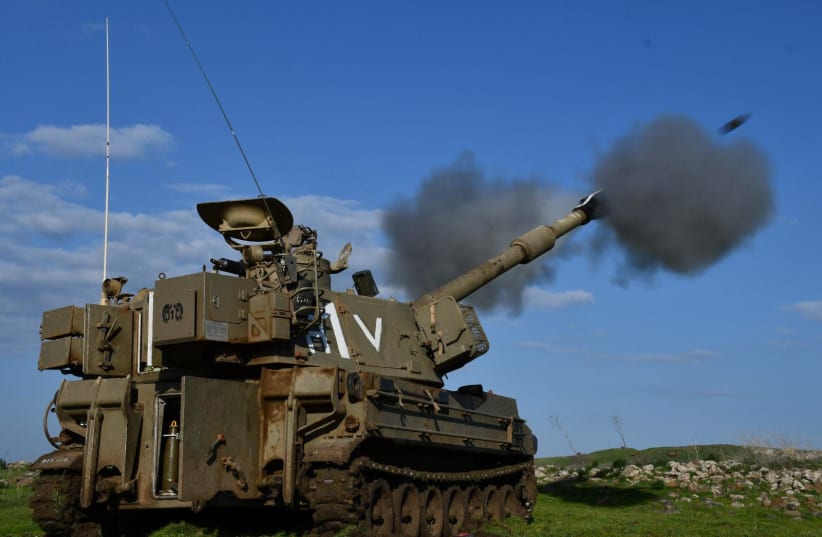The allocation was finalized late on Tuesday night by Prime Minister Naftali Bennett, Finance Minister Avigdor Liberman and Defense Minister Benny Gantz.
The funds will be used to “equip and strengthen” the IDF in accordance with the threats that Israel faces, “with an emphasis on purchasing from defense companies operating in Israel’s periphery,” read a statement released by the Defense Ministry.
Some NIS 750 million will be allocated to the Home Front Command, and money will also go towards the overhaul of mental health services in the army, as well as towards the “From Uniform to Studies” scholarship program that helps pay for the college or university tuition of discharged combat soldiers.
“The prime minister, finance minister and defense minister welcome the agreement and call on all ministers and ministries to reach an understanding as soon as possible in order to approve the state budget in an orderly manner in the government and the Knesset,” read the statement.
Gantz, who is in Paris to meet with senior defense officials, said that the “responsible defense budget” will “maintain our security superiority in the face of increasing threats, and safeguard the interests of the State of Israel and other government ministries.”
Thanking Bennett and Liberman, who served as defense minister under former prime minister Benjamin Netanyahu, Gantz said that the new budget will also allocate funds for the “One Soul” reform that was created as a solution to reform services the Defense Ministry provides to IDF veterans suffering from post-traumatic stress disorder from their service.
“This is a moral debt that belongs to the whole of Israeli society – and mine personally,” he said.
According to Gantz, the budget will also allow the defense establishment to implement the Magen Hatzafon project in northern Israel, as well as the increase of procurement from factories in the South and the From Uniform to Studies program.
IDF Chief of Staff Lt.-Gen. Aviv Kohavi has stressed several times that the military has a window of time to increase the gap between Israel and her enemies without going to war and has built its Momentum multiyear plan to face future battles.
In order to move central aspects of the plan forward, Kohavi had to divert funds and carry out internal cuts and make changes in priorities.
Without a budget for the past three years, the IDF had been unable to purchase the amount of munitions that was needed and upgrade basic infrastructure for the Ground Forces. Nevertheless, it was still able to close deals with Israeli defense companies for equipment and weapons.
Changes in force design also saved the military funds and strengthened units with more assets.
But the lack of a budget has made it difficult to carry out key defensive projects, including the border wall with Lebanon, and fix countless holes in the West Bank border fence. The military has also been unable to improve shelters for the home front, especially in the North where it is engaged in an ongoing “war-between-wars” campaign against Iran’s military entrenchment.
KAN public broadcaster reported two weeks ago that the Israeli military asked for a major budget increase worth billions of shekels so that it can strengthen its attack capabilities should it need to attack Iran’s nuclear program.
Israel considers Iran’s nuclear program as the number one concern and, according to recent intelligence assessments, Tehran is less than a year away from a nuclear weapon and has accelerated its nuclear enrichment activity.
Two weeks ago, Gantz called for Israel to step up preparations should Iran obtain a nuclear weapon.
“Against the greatest threat – Iran arming itself with a nuclear weapon – we have no choice but to expand our force build-up, to continue to rely on our human capital and to adapt our capabilities and our plans,” he said.
The defense minister called on the government to allow the country’s security services to “maintain military superiority, which allows our existence and our efforts to obtain peace.”
Doing so is not “a privilege but a real existential need.”
Jerusalem Post Staff contributed to this report.
